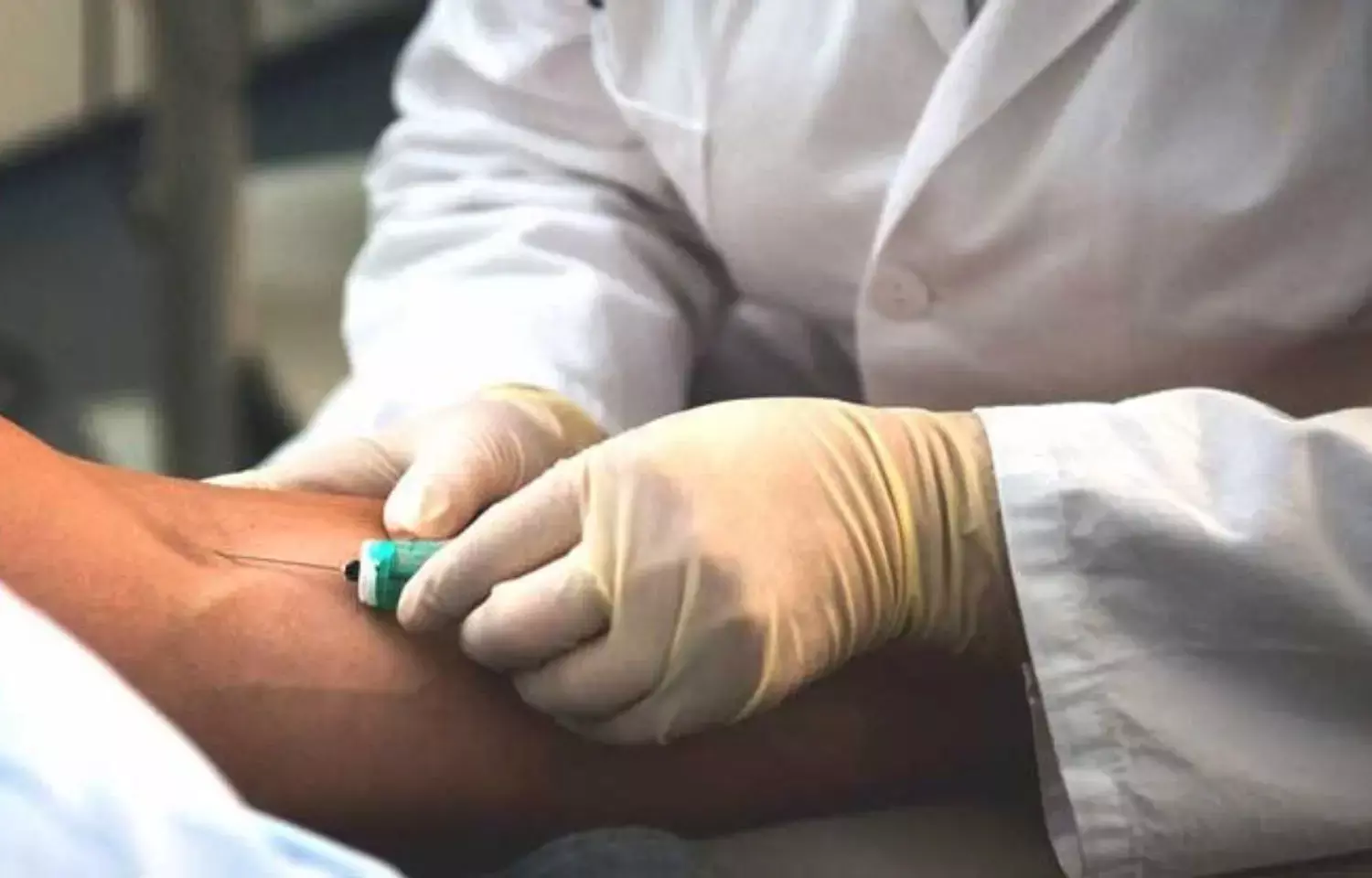- Home
- Medical news & Guidelines
- Anesthesiology
- Cardiology and CTVS
- Critical Care
- Dentistry
- Dermatology
- Diabetes and Endocrinology
- ENT
- Gastroenterology
- Medicine
- Nephrology
- Neurology
- Obstretics-Gynaecology
- Oncology
- Ophthalmology
- Orthopaedics
- Pediatrics-Neonatology
- Psychiatry
- Pulmonology
- Radiology
- Surgery
- Urology
- Laboratory Medicine
- Diet
- Nursing
- Paramedical
- Physiotherapy
- Health news
- Fact Check
- Bone Health Fact Check
- Brain Health Fact Check
- Cancer Related Fact Check
- Child Care Fact Check
- Dental and oral health fact check
- Diabetes and metabolic health fact check
- Diet and Nutrition Fact Check
- Eye and ENT Care Fact Check
- Fitness fact check
- Gut health fact check
- Heart health fact check
- Kidney health fact check
- Medical education fact check
- Men's health fact check
- Respiratory fact check
- Skin and hair care fact check
- Vaccine and Immunization fact check
- Women's health fact check
- AYUSH
- State News
- Andaman and Nicobar Islands
- Andhra Pradesh
- Arunachal Pradesh
- Assam
- Bihar
- Chandigarh
- Chattisgarh
- Dadra and Nagar Haveli
- Daman and Diu
- Delhi
- Goa
- Gujarat
- Haryana
- Himachal Pradesh
- Jammu & Kashmir
- Jharkhand
- Karnataka
- Kerala
- Ladakh
- Lakshadweep
- Madhya Pradesh
- Maharashtra
- Manipur
- Meghalaya
- Mizoram
- Nagaland
- Odisha
- Puducherry
- Punjab
- Rajasthan
- Sikkim
- Tamil Nadu
- Telangana
- Tripura
- Uttar Pradesh
- Uttrakhand
- West Bengal
- Medical Education
- Industry
Hypocalcemia associated with adverse outcomes in patients hospitalized with COVID-19

Researchers have found in a new study that Hypocalcemia is associated with adverse outcomes in patients hospitalized with COVID-19.
The new study conducted by Alessandro Minasi and team found that serum calcium observed on admission was negatively associated with proinflammatory indicators of severe COVID-19 and can be used to better characterize risk stratification for poor in-hospital outcomes.
The findings of this study were published in Endocrine Journal.
Numerous biological activities are regulated by calcium ions, and they may potentially have an impact on viral replication. In patients with critical illnesses and infectious infections, including those with COVID-19, hypocalcemia has been often described. It is strongly correlated with mortality and a pro-inflammatory condition. The purpose of this study was to ascertain the prevalence of hypocalcemia upon admission in COVID-19 (Coronavirus disease 2019) hospitalized patients and to assess the relationship between hypocalcemia and COVID-19 in-hospital outcomes.
Review of 118 patients who were hospitalized for COVID-19 between March and May 2020. At admission, data on the patient's clinical features, inflammatory indicators, biochemical routine, and mineral metabolism parameters were gathered. Total serum calcium levels under 2.2 mmol/L were considered hypocalcemic. Tertiles of total serum calcium were used to stratify the population. The primary outcome was a composite of in-hospital mortality or ICU admission (ICU). In-hospital deaths, ICU admissions, and the requirement for non-invasive breathing were all considered secondary outcomes. Cox-regression analysis and logistic regression were used with survival curves to test associations.
The key findings of this study were:
1. Only 6.7% of patients had levels of 25-(OH)-vitamin D more than 30 ng/ml, resulting in a 76.6% incidence of hypocalcemia overall.
2. Total serum calcium was negatively correlated (p 0.05) with a number of inflammatory indicators and a worse COVID-19 hospital outcome.
3. When compared to other groups, those with lower tertiles of total calcium (2.02 mmol/L) had an increased risk of in-hospital mortality (HR 2.77; 1.28–6.03, p = 0.01).
Reference:
Minasi, A., Andreadi, A., Maiorino, A., Giudice, L., De Taddeo, S., D'Ippolito, I., de Guido, I., Laitano, R., Romano, M., Ruotolo, V., Magrini, A., Di Daniele, N., Rogliani, P., Bellia, A., & Lauro, D. (2022). Hypocalcemia is associated with adverse outcomes in patients hospitalized with COVID-19. Endocrine. https://doi.org/10.1007/s12020-022-03239-w
Neuroscience Masters graduate
Jacinthlyn Sylvia, a Neuroscience Master's graduate from Chennai has worked extensively in deciphering the neurobiology of cognition and motor control in aging. She also has spread-out exposure to Neurosurgery from her Bachelor’s. She is currently involved in active Neuro-Oncology research. She is an upcoming neuroscientist with a fiery passion for writing. Her news cover at Medical Dialogues feature recent discoveries and updates from the healthcare and biomedical research fields. She can be reached at editorial@medicaldialogues.in
Dr Kamal Kant Kohli-MBBS, DTCD- a chest specialist with more than 30 years of practice and a flair for writing clinical articles, Dr Kamal Kant Kohli joined Medical Dialogues as a Chief Editor of Medical News. Besides writing articles, as an editor, he proofreads and verifies all the medical content published on Medical Dialogues including those coming from journals, studies,medical conferences,guidelines etc. Email: drkohli@medicaldialogues.in. Contact no. 011-43720751


